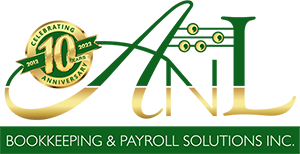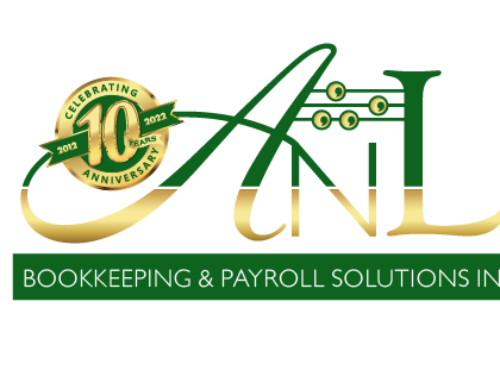Why are you trying to do your own bookkeeping?
So you’re a new (or not) business owner, and you want to save money by attempting to do, at least some, of your bookkeeping yourself. I’m here to tell you why you need to let a bookkeeper do the bookkeeping. Here’s a link to an article I wrote about why you need to hire a bookkeeper. Not convinced? Here’s an article written by Manuel Batll at the University of Rhode Island on why your small business needs a bookkeeper. In fact, ask Google why you need a bookkeeper and there is no shortage of answers. Now, there are many reasons to argue about why you should hire a bookkeeper for your small business. From saving money to freeing up your time, it’s worth the minimal expense to outsource this most important function of your business. But that is not the scope of this post. So what is the point of this article?
You need to let your bookkeeper do the bookkeeping.

Leave the bookkeeping to an expert.
As I already pointed out, some business owners feel it’s better to do some of the bookkeeping themselves and have the bookkeeper ‘review’ it. I’m here to tell you why that is a bad idea. So keep reading.
First, let’s discuss what are the duties of the bookkeeper. The right bookkeeper is a well trained professional who knows and understands the full bookkeeping cycle. If you are not familiar with the term ‘full cycle bookkeeping’, then that is point numero uno; pardon my Spanish. Full cycle bookkeeping involves recording of everything from purchase orders, sales, expenses, bill payments to payroll and government liabilities. It may also include inventory control and understanding when something should be recorded as an inventory asset and when it should be recorded as Cost of Goods Sold. At month end, your bank and credit card statements need to be reconciled to ensure everything is captured and to reduce errors. That’s not to say that the reconciliation process ensures total accuracy but it plays a very important role in your bookkeeping cycle. The final step in the bookkeeping cycle is to review the financial statements. Your financial statements will give the bookkeeper an overall look at how things are going and, a good bookkeeper, will be able to recognize trouble areas. A great bookkeeper can track down where the trouble areas are and make corrections if needed.
Why the bookkeeper should be doing the bookkeeping.
Let’s start with the set up of the books. The bookkeeper is educated in the differences between assets, liabilities, equity, income and expenses and how they correlate to each other. The bookkeeper knows that total assets must equal liabilities and equity. The bookkeeper knows which of these items will affect the balance sheet and which ones will affect the profit and loss. The bookkeeper knows that a change in any one of these entities results in a change to another entity. The list goes on. An untrained individual does not possess this knowledge and therefore doesn’t understand how to set the books up for success.
Despite all of this, you insist on doing some of the work yourself. The first problem is, well, the whole third and fourth paragraphs. You likely don’t understand all of the internal workings of a good set of books. For instance, for every transaction that is made, let’s say a sale, there is a back end transaction happening that you cannot see. The bookkeeper comprehends this and therefore knows the proper way to record the transaction. Once you, the business owner, start making entries that are recorded incorrectly, things can get complicated for everyone.
What are the repercussions of not having the bookkeeper do the bookkeeping?
- If you don’t happen to use a bookkeeper at all and you rely on your accountant to prepare your year end tax return, one of two things is going to happen:
- Your accountant is going to detect errors and make an effort to correct them for you. Accountant rates are much higher than a bookkeeper’s rates and therefore you are going to run into big $$$. (Click here to read an article I wrote about the differences between an accountant and a bookkeeper).
- More likely, your accountant is going to assume that everything is, for better or for worse, okay as is. Then they will prepare your tax return with completely false information (to no fault of their own).
- If you are using a bookkeeper, the bookkeeper is going to find many (not all, more on that later) errors and need to correct them to the best of their ability. This, again, is going to cost money for their time.
Here’s the problem when you want to share the bookkeeping duties.

You must trust your bookkeeper.
I said earlier that the bookkeeper may not find all of the errors. It’s not possible and they cannot be expected to especially if they have not been solely responsible for the books. There can be entries into the books that are incorrect that, on the surface, look correct. Remember those back end transactions I mentioned? These often will be missed by the bookkeeper and the accountant. The result? Your financial statements are not accurate. Is this to say that if you hire a bookkeeper for your full cycle bookkeeping, everything will be perfect? Of course not. No one is perfect. But with a qualified bookkeeper your chances of accurate and reliable statements is much higher.
Another issue I have run into is the business owner and the bookkeeper not agreeing on how something should be entered or corrected. In many cases, the business owner doesn’t comprehend what is happening when things are entered incorrectly. This can result in the blame game which ultimately leads to resentment or even animosity. If you don’t trust your bookkeeper is doing the right thing, is that bookkeeper a good fit for you?
Some final thoughts.
The bottom line is that a qualified bookkeeper knows how to do the bookkeeping. You don’t; you know whatever it is you do, whether it’s sales, psychotherapy. construction etc., that’s what you know and do. So spend your time doing it and making money! And certainly don’t give up your nights and weekends to do your paperwork. Your family needs you. You need a break. Afraid of the cost? Well, what are the costs of the errors you may be making? I can tell you: hours and hours of work for the bookkeeper to find and correct those errors. I challenge you to seek out a bookkeeper to see just what the cost would be. You might be surprised at how little it will be. And what can you do with that extra 5 – 10 hours per month?





